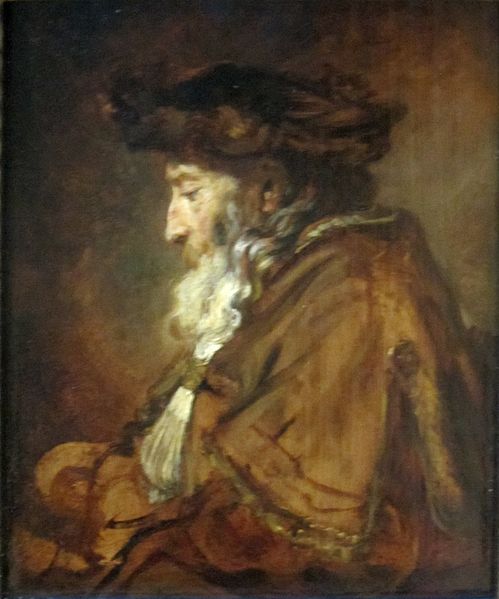Change Places
modified ver of “Treasury of Jewish Folklore” 1 2
The rabbi put on the driver's clothes kläder and the driver put on the rabbi's clothes.
They arrived at their destination slutpunkt. The bogus oäkta rabbi was received togs emot with great enthusiasm. The people there obviously uppenbarligen loved every minute of his visit.
Finally, however dock, till slut, there came the dreaded fruktade moment. An extremely tricky knepig question was put to him.
He met the test nobly (på ett fint sätt). “A fine lot samling of scholars (religions)studerande you are,” he thundered han talade upprört. “Is this the most difficult question you could ask me? Why, this is so simple enkelt even my driver could explain förklarar it to you.”
Then he called the rabbi. "Driver, come here for a moment. Clarify förklara the Law for these dull-witted tjockskallig fellows (men).”
Questions
Who stopped the car?
The driver ( chauffeur chaufför) wanted the rabbi to do something. What did the driver want?
chauffeur chaufför) wanted the rabbi to do something. What did the driver want?
A man asked a question. He wanted the "rabbi" (who wasn't really a rabbi) to answer. The fake rabbi had no idea what the answer was. So, what did he do?
Translate the story into Swedish (on a separate paper).
There is an expression talesätt, "Clothes don't make the man." In this story, the rabbi says, "clothes don’t make the rabbi." What does he mean?
Write a very short story using the words, "Clothes don't make..."
More info:
There are many movies and books about people switching. Two examples:
1. Disney's Daffy Duck often tries to get the hunter to shoot Bugs (the rabbit), but Bugs somehow changes the situation so that Daffy Duck gets shot. Example:
Bugs: It's true, Doc. I'm a rabbit, alright. Would you like to shoot me now or wait 'til you get home?
Daffy: Shoot him now! Shoot him now!
Bugs: You keep out of this! He doesn't have to shoot you now.
Daffy: He does so have to shoot me now! (To the hunter): I demand that you shoot me now!
2. A kindly, elderly couple entertained strangers even though they themselves were impoverished (poor). One set of "bums" were impressed and decided to reward the couple. The strangers were actually the Greek gods Zeus and Hermes. they made a grand palace for the kindly couple, and the gods granted their wish that they should die at the same moment. Both were transformed into trees, and their boughs större trädgren were entertwined, symbolizing their everlasting love.


